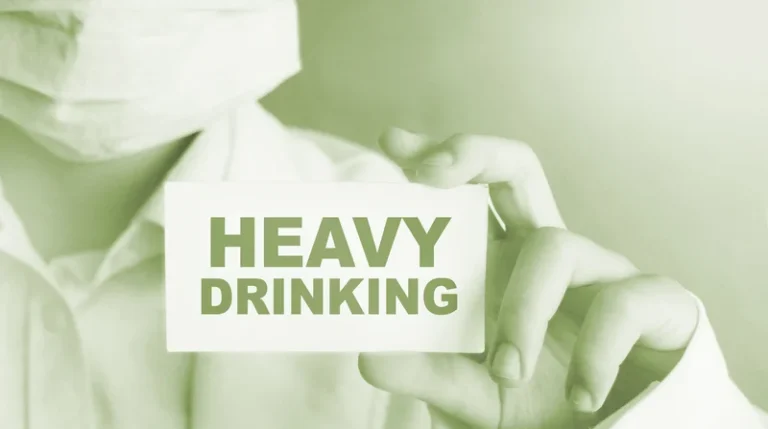
It causes symptoms such as compulsive behavior and intense cravings. It disrupts a person’s ability to think critically, make rational decisions and function normally. An alcoholic may be someone who is addicted to or physically dependent on alcohol.
Why do addiction experts avoid the word “cure”?
Our goal is for each of our clients to improve themselves, their can alcoholism be cured relationships, and their futures without the heavy burden of alcohol. Physically, alcohol can damage the liver, the organ responsible for breaking down alcohol and clearing it from the body. With long-term use, alcohol can also lead to heart disease, digestive problems, stroke, and even certain cancers. Worse, alcohol also negatively affects the immune system, making it more difficult to fight and recover from these issues. Alcohol can cause severe negative effects on the brain and body when overwhelmed.
Advice for Friends & Family Members
Our treatment plans are customized for each individual based on their presenting issues. By developing a comprehensive individualized treatment plan for each of our clients, we are able to create a therapeutic environment that fosters physical, emotional, and spiritual growth and well being. When should a person seek help for a problem related to his or her drinking? The National Institute on Alcohol Abuse and Alcoholism (NIAAA) has prepared this booklet to help individuals and families answer these and other common questions about alcohol problems. The following information explains both alcoholism and alcohol abuse, the symptoms of each, when and where to seek help, treatment choices and additional helpful resources. By classifying alcoholism as a chronic disease, it means that alcoholism is viewed as https://ecosoberhouse.com/ a progressive, long-lasting illness where there is no cure.

What makes Yale Medicine’s approach to alcohol use disorder unique?
This is troubling because it is a trait that can be handed down through generations. There are conflicting opinions on this topic in the medical community. This is because of the way drugs affect a person’s brain and it’s plasticity, or the brain’s ability to change structurally or physiologically over time as a result of experience.
FACT: Vitamin and mineral supplements cannot cure COVID-19

Each of the 11 diagnostic criteria the association uses is a problem related to alcohol use. Older people and younger people can be infected by the COVID-19 virus. Older people, and people with pre-existing medical conditions such as asthma, diabetes, and heart disease are more vulnerable to becoming severely ill with the virus. Outpatient Rehabilitation – During intensive outpatient treatment, clients live at home or in a sober living residence which can help keep them accountable for their recovery commitment. Our staff coordinates with local, reputable sober living homes to ensure that our clients are living in a safe place and that their needs are being met, even when they are not at clinical sessions.
Does Alcoholism Treatment Work?
An intensive outpatient program (IOP) still offers a full slate of rehabilitation programming spread over fewer hours per week than the other rehab programs listed above. IOPs usually meet for three or more days during the week for only a few hours at a time. IOPs allow even more free time for the individuals involved, which enables participants to work, attend school, and maintain family responsibilities if they choose to. Some individuals who have successfully completed other rehabilitation may transfer to an IOP after attending a more extensive program. Even if you answered “no” to all of the above questions, if you encounter drinking-related problems with your job, relationships, health or the law, you should seek professional help.
- These changes can persist long after you stop drinking, even years or decades later, making relapse an ever-present risk.
- Some people may think the only way to deal with it is with willpower, as if it’s a problem they have to work through all on their own.
- Accepting the fact that help is needed for an alcohol problem may not be easy.
- Many years ago, those who struggled with alcohol addiction or dependency were considered to be people with weak morals who were missing the strong characteristics needed to overcome their struggles.
- Alcoholism is a chronic condition, meaning the condition does not go away entirely after treatment.
- Alcoholism is a common and different term for alcohol use disorder.
- With your group, you can bond over shared experiences, spend time together, and create a strong support system.
It is used to help reduce alcohol consumption or prevent relapse after completing rehab. A typical course of naltrexone lasts for about six months or so. The general consensus among professionals now is that alcoholism is a brain disease characterised by both physical and psychological dependence on alcohol. It is a condition best treated by professionals with experience, knowledge, and the right tools to help alcoholics along their what is Oxford House individual roads to recovery. Yet the condition can be effectively managed by teaching a person strategies that can help them cope with stress and environmental factors that contribute to their alcohol abuse. At Recovery Guide, our mission is to connect as many individuals struggling with mental health and substance abuse disorders to reputable treatment facilities.
- Many people repeatedly try to cut back or quit drinking, have a setback, then try to quit again.
- Relapse rates for drug use are similar to rates for other chronic medical illnesses.
- For those looking for a quick fix, the truth is that for most people, it is a lifelong journey that requires a firm and lasting commitment to maintaining sobriety.
- We are proud to the best alcohol rehabilitation North Carolina has to offer.
- You would be expected to take full responsibility for yourself in an outpatient treatment scenario.
- People often wonder whether it’s better to go to inpatient or outpatient rehab for alcohol.
Relapse Statistics are Scary; Here’s How You Can Help Prevent One

The effects of alcohol abuse can be extremely serious — even fatal — both to you and to others. The consequences of alcohol misuse are serious — in many cases, life threatening. Heavy drinking can increase the risk for certain cancers, especially those of the liver, esophagus, throat and larynx (voice box).
Stephen Holt
Alcohols in the sanitizers have not been shown to create any relevant health issues. Little alcohol is absorbed into the skin, and most products contain an emollient to reduce skin dryness. Allergic contact dermatitis and bleaching of hand hair due to alcohol are very rare adverse effects. Accidental swallowing and intoxication have been described in rare cases. If you are looking for alcohol advice or treatment, contact UKAT today. We can help you get started on the journey to recovery and a brighter future.

Leave a Comment